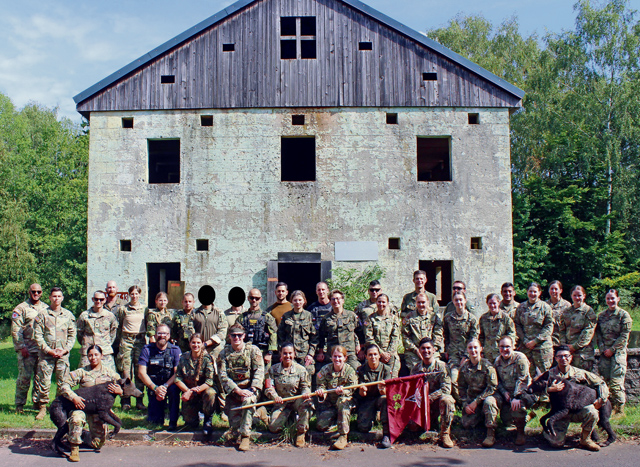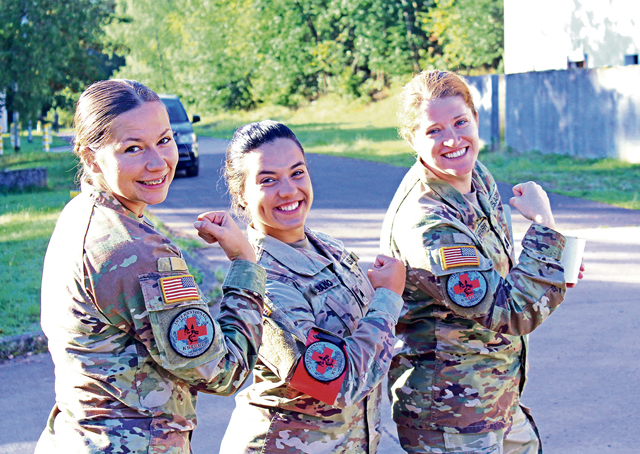
Canine handlers, medics, veterinarians, and veterinary assistants from multiple military branches, allied partner nations, and police organizations across Europe participated in a three-day course to improve canine medical skills in Baumholder Sep. 12-15.
64th Medical Detachment Veterinarian Support Services hosted the event focused on operational realism, repetition, and scenario driven exercises.
Canine Tactical Combat Casualty Care course covers life-saving combat emergency canine medical skills. It is designed for canine handlers and combat medics, but also applies to other relevant medical professionals such as veterinary personnel and human Health Care Providers. The program is based on U.S. Department of Defense Joint Trauma System guidelines for Canine Tactical Combat Casualty Care.
This three-day course achieved three goals:
- Impact survival of Working Dogs in real-world operations
- Maximize learning with an intensive, multi-modal approach
- Improve the interoperability between U.S. and our allied and partner nation Working Dog communities.
These goals were supplemented with an emphasis on operational realism through tactical and dynamic scenarios.

The equipment utilized reinforced real-world realism using Diesel Dogs (the robotic training dog), which mimics behaviors real Working Dogs would exhibit. These robotic training aids are equipped with animatronic functions, such as breathing and muscle movement, and stereo output mimicking realistic canine reactions. This in-depth training is not for the squeamish, as the dogs’ injuries were often seeped in simulated blood adding yet another layer of realism.
The Canine Tactical Combat Casualty Care course is critical to maintaining proficiency across Europe since it is the only course of this nature available to the Working Dog community. “Many of our partners utilize this course as a proficiency certification due to the stringent standards enforced throughout this training” said CPT Laura Nelson-Parr, the 64th Medical Detachment’s lead course planner.
The training course is also about brining experts together and sharing expertise and experiences. “It is a great honor to work and share experiences with international soldiers and police officers,” said Marc Zeidern, the owner of Airborne Medical Group and a German Reserve Fallschirmjager Medic, “This was my fourth K9TCCC and still there is always something to learn.”
At the end of this yearly course, every participant who passed their hands-on and written exams were presented with certificates of completions, ensuring their efforts and proficiencies are justly documented.


